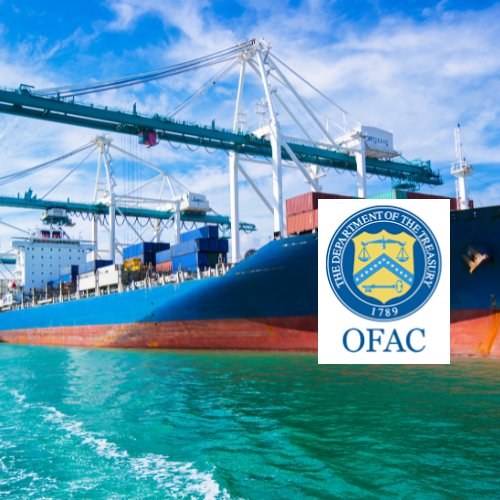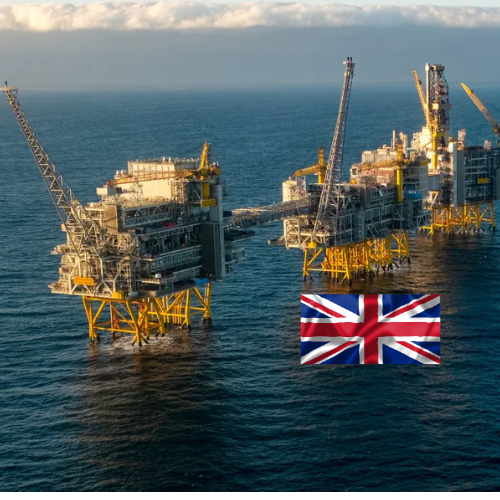This week OFAC, the financial intelligence and enforcement agency of the US Treasury, announced (click here) an update to its advisory regarding petroleum shipments involving Iran and Syria. OFAC’s Advisory to the Maritime Petroleum Shipping Community (click here) highlights the risks and associated mitigation measures regarding oil and related product shipments to Syria as summarised below:
- The updated advisory alerts to the significant US sanctions risks for parties involved in petroleum shipments to the Government of Syria;
- The advisory contains an updated Annex, providing a list of vessels that have been involved in fuel shipments to Syria and which are currently designated as blocked property on OFAC’s List of Specially Designated Nationals and Blocked Persons (SDN List);
- Some of the shipments and transfers have involved Iranian-origin oil, and countries such as Iran and Russia have continued to provide petroleum shipments to the Government of Syria;
- Petroleum shipments to Syria create significant sanctions risk under several sanctions programmes potentially impacting shipping companies, vessel owners, managers, operators, insurers and financial institutions;
- Those who facilitate the financial transfers, logistics, or insurance associated with such petroleum shipments to Syria are also at risk of being targeted by US sanctions enforcement;
- The guidance states plainly:
"The United States and European Union (EU) maintain sanctions programs against Syria, and the United States will continue to maximize pressure on the Assad regime and will continue imposing financial costs on the Assad regime and its network of financial and logistics facilitators."
The note briefly describes what OFAC considers to be deceptive shipping practices as summarised below:
- Falsifying Cargo and Vessel Documents:
- Bills of lading, certificates of origin, invoices, packing lists, proof of insurance, and lists of last ports of call typically accompany a shipping transaction;
- Complete and accurate shipping documentation is critical to ensuring all parties to a transaction understand the parties, goods, and vessels involved;
- Shipping companies have been known to falsify vessel and cargo documents to obscure the destination of petroleum shipments.
- Ship to Ship (STS) Transfers:
- STS transfers involve the transferring of cargo from one ship to another while at sea rather than while located in port;
- While they can be legitimate, they are also used by malign actors to conceal the true origin or destination of cargo.
- Manipulating Automatic Identification System (AIS):
- AIS is a collision avoidance system which transmits a vessel’s identification, navigational and positional data;
- While not specifically designed for vessel tracking, AIS is often used for this purpose;
- Ships meeting certain tonnage thresholds and which are engaged in international voyages are required to carry and operate AIS but vessels carrying petroleum to Syria have been known to intentionally manipulate their AIS transponders to mask their movements.
- Vessel Name Changes:
- Vessel owners involved in illicit activities are known to change the name of a vessel to obfuscate its prior illicit activities;
- It is essential to research a vessel not only by name, but also by its International Maritime Organization (IMO) number.
The note briefly describes recommended measures to mitigate the above risks:
- Strengthen Anti-Money Laundering/Countering the Financing of Terrorism (AML/CFT) Compliance:
- Firms are strongly encouraged to employ risk mitigation measures consistent with Financial Action Task Force (FATF) standards designed to combat money laundering, and terrorist and proliferation financing;
- This includes the adoption of appropriate due diligence policies and procedures by firms and promoting beneficial ownership transparency for legal entities.
- Monitor for AIS Manipulation:
- When at high-risk of piracy, it is common for the AIS transponders to be turned off and thus this should not be considered an automatic red flag;
- Ship registries, insurers, charterers, vessel owners, or port operators should focus on vessels that have turned off their AIS transponders for extended periods or unknown reasons when operating in the Mediterranean and Red Seas;
- Other signs of manipulating AIS data should be considered red flags for potential illicit activity and should be investigated fully prior to continuing any commercial activities with such vessels.
- Review All Applicable Shipping Documentation:
- Firms processing transactions relating to shipments potentially involving petroleum bound for Syria or involving oil from Iran should ensure that they request and review complete and accurate shipping documentation;
- Such documentation should reflect the details of the underlying voyage and reflect the relevant vessel(s), flagging, cargo, origin, and destination;
- Any indication that shipping documentation has been manipulated should be considered a red flag for potential illicit activity and should be investigated fully prior to continuing with the transaction.
- Know Your Customer (KYC):
- As a standard practice KYC due diligence should be undertaken by all service providers;
- Such due diligence ensures that those participants are aware of the activities and transactions they engage in, the parties, geographies, and country-of-origin and destination of the goods involved in any underlying shipments;
- This should not be limited to researching companies and individuals, but also the vessels, vessel owners, and operators involved in any contracts, shipments, or related maritime commerce;
- Apply best practices for conducting KYC on a vessel, include researching its IMO number, as this will provide a more comprehensive picture of the vessel’s history, travel patterns, ties to illicit activities, actors, or regimes, and potential sanctions risks associated with the vessel or its owners or operators.
- Clear Communication with International Partners:
- Parties to a shipping transaction may be subject to different sanctions regimes depending on the parties and jurisdictions involved;
- Hence clear communication is a critical step for international transactions – open discussion with parties to a transaction can ensure more effective compliance.
- Leverage Available Resources:
- Several organizations can provide commercial shipping data, such as ship location, ship registry information, and ship flagging information;
- This data should be incorporated into due diligence best practices, along with available information from OFAC itself (which also references the “Syria Sanctions Resources” - click here).
Those compliance professionals responsible for sanctions compliance are advised to read the guidance note in full.


